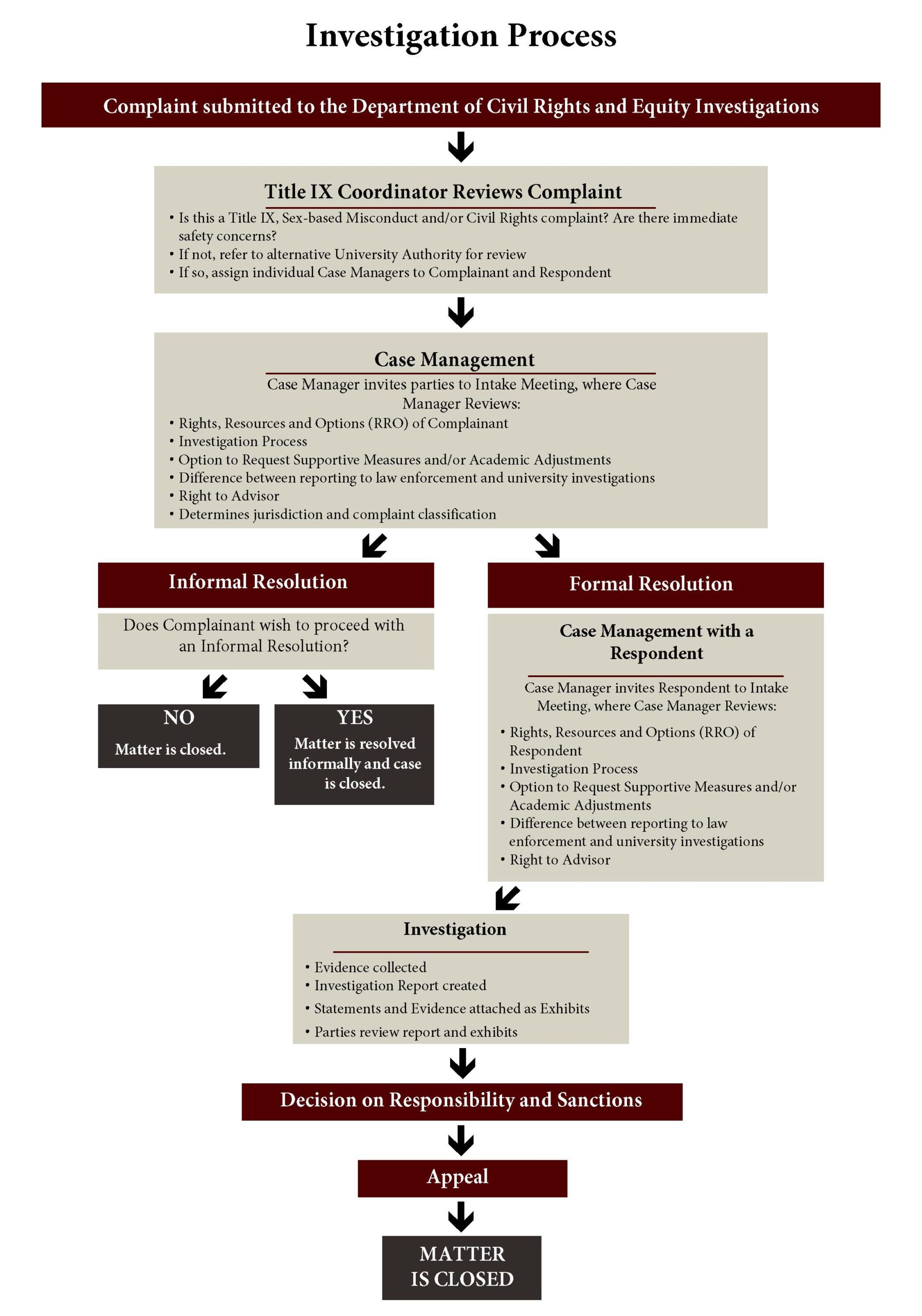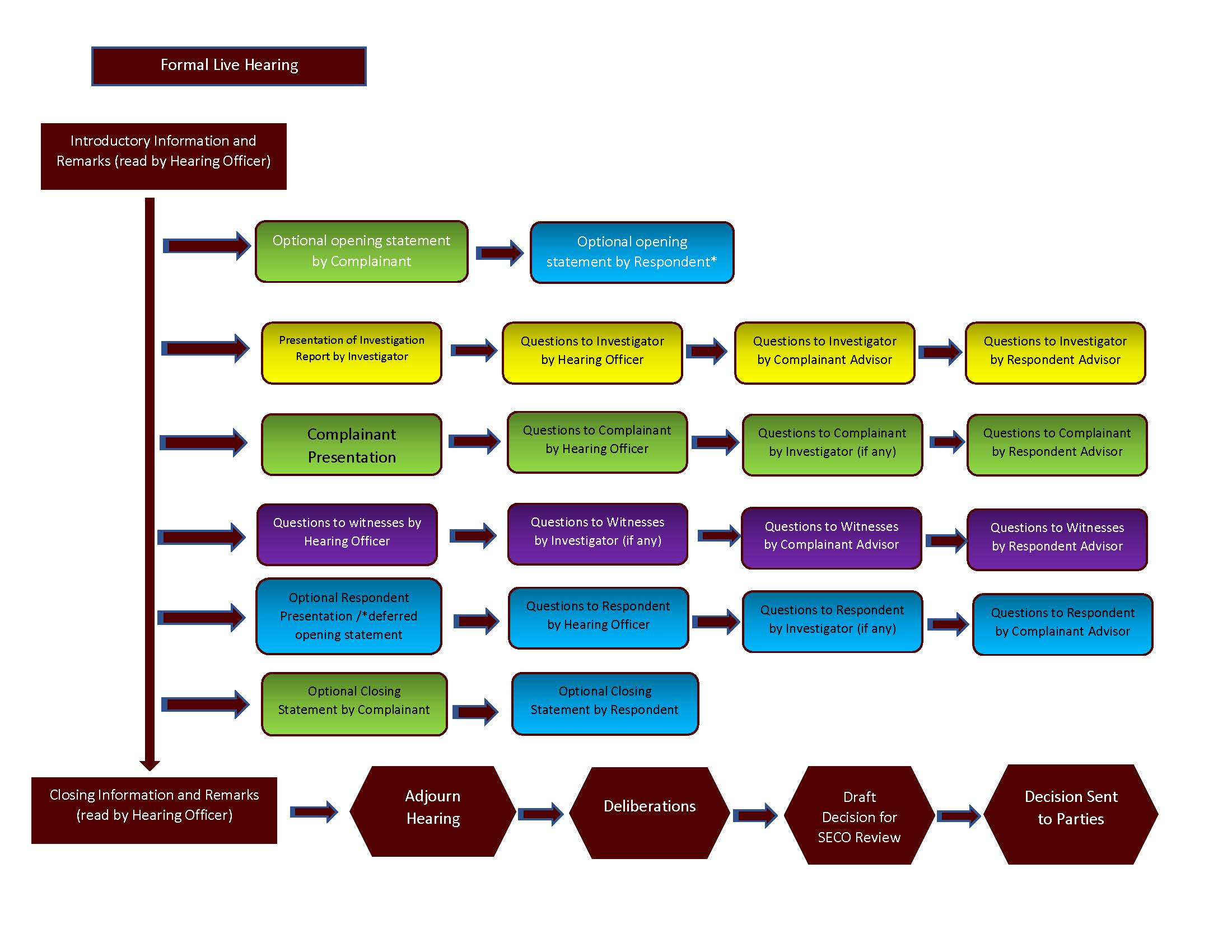The Investigation Process

The Department of Civil Rights and Equity Investigations (CREI) at Texas A&M University is responsible for investigating allegations of prohibited conduct, in order to protect students, faculty, staff, and campus visitors from all forms of sex discrimination.
What does the investigation and resolution process look like? Review the step-by-step flow chart below to understand more about our process.
You can also download the investigation process flow chart, or view the accessible outline of the flow chart diagram.

Outline of Investigation Process Flow Chart
Stages of the Investigation Process
You can read summary descriptions of the three stages in our process: intake, investigation, and decision. Please see Texas A&M Rule 08.01.01.M1 and Texas A&M Rule 08.01.01.M1.01 for more complete information about our process.
Who will decide my case?
If allegations are against: | The Designated Administrator decides responsibility and sanctions | The Appellate Authority decides the appeal (if any) |
|---|---|---|
Student | Hearing Officer | University Disciplinary Appeals Committee (UDAP) |
Staff | Hearing Officer | Vice President for Human Resources and Organizational Effectiveness |
Faculty | Provost | University Committee on Faculty Disciplinary Appeals (UCFDA) renders an advisory opinion to the Provost and Executive Vice President, who renders a final decision |
Overview of the CREI Hearing Process


